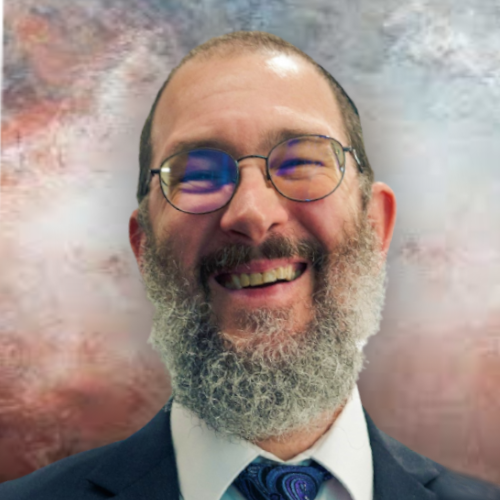
If you haven't read George Orwell's dystopian masterpiece "1984," read it. If you have read it, read it again. Arguably the most important book of the last century, it reminds us how easily our minds can be manipulated, how susceptible we are to distortive thinking, how unreliable are the factoids that present themselves as truth.
Envisioning a world born of Soviet-style communism, Orwell introduces us to the ideological mantra of the ruling Party:
WAR IS PEACE
FREEDOM IS SLAVERY
IGNORANCE IS STRENGTH
What makes these slogans so insidious? That they contain just enough truth to form convincing lies.
A fractured community makes peace within itself when facing an external enemy. Unbounded freedom renders us slaves to our impulses. Awareness of how much we don't know motivates us to grow by seeking knowledge and wisdom.
But sophistication and nuance have been banished from this totalitarian society. By propagating self-contradictory sound bites, the Party dismantles all boundaries of logic and reason. Ideological messaging takes on a guise of plausibility, no matter how irrational it might be. The result is Orwell's contribution to the Ethical Lexicon:
Doublethink (dou*ble*think/ duhb-uhl-thingk) noun
The acceptance of or mental capacity to accept contrary opinions or beliefs at the same time, especially as a result of political indoctrination.
With chilling prescience, "1984 "depicts a government that controls its people in two ways. First, by criminalizing both inquiry and protest, thereby creating a culture of unpredictability and fear. Too frightened to ask questions or express objections, citizens learn quickly to stop questioning or objecting.
Second, by the creation of Newspeak, a language in which only the most rudimentary information and concepts can be expressed. Lacking the vocabulary to articulate or formulate either complex or rebellious ideas, the proletariat become as compliant as sheep.
The term "Orwellian" is typically applied (accurately) to the far ideological left. However, doublethink finds itself comfortably at home on both sides of the political divide.
Free-market conservatives might vehemently deny it, but one of the most egregious perpetrators of doublethink was Ayn Rand. The philosophy she disingenuously dubbed "objectivism" is precisely the opposite of what it purports to be.
Rand asserts that objective moral principles are based on the needs of human survival; she then identifies the pursuit of individual happiness as the highest moral purpose. In other words, what's best for me is what's best for the world.
Defining selfishness as virtue and altruism as vice sounds a lot more like ethical subjectivism than anything objective. It is quintessentially Orwellian, invoking and then discarding in a single breath the primacy of reason. How disturbingly ironic that the political correctness associated with progressive ideology can trace its roots to a conservative icon.
Doublethink makes it possible to ignore the complexity of agenda-driven policy debates. Only through mental gymnastics can one argue for the human dignity of trans athletes without acknowledging the proportionate lack of dignity imposed on biological women competitors. Only through ideological compartmentalization can one protest even reasonable gun laws without conceding the danger of unregulated firearms.
And how can anyone lobby for women's reproductive rights while disregarding our responsibilities to the unborn, or champion the rights of the unborn without concern for the life of the mother? Only with the ethical myopia produced by doublethink.
The virus of doublethink metastasizes from political and social issues to personal character. We've come to expect the abandonment of intellectual integrity by condemning the corruption of one party while whitewashing the corruption of the other, by decrying double standards while simultaneously engaging in them.
The words we use matter. As Orwell wrote, "If thought corrupts language, language can also corrupt thought."
When we insist on calling things what they clearly are not and refuse to call them what they are, our arguments inevitably become incoherent. We thereby destroy our own credibility, which makes it impossible to work toward genuine solutions. Only by rejecting the verbal contortionism that accompanies doublethink can we restore integrity to our language, our thoughts and our society.
Previously:
• How to Scratch the Itch that Sabotages your Success
• Why Sometimes NOT Seeing Is MORE Believing
• A Healthy Diet for the Brain Promotes Ethical Clarity for the Mind
(COMMENT, BELOW)
Rabbi Yonason Goldson graduated from the University of California at Davis with a degree in English, which he put to good use by setting off hitchhiking cross-country and backpacking across Europe. He eventually arrived in Israel where he connected with his Jewish roots and spent the next nine years studying Torah, completing his rabbinic training as part of Ohr Somayach's first ordination program. After teaching yeshiva high school for 23 years in Budapest, Hungary, Atlanta, Georgia, and St. Louis, Missouri, Rabbi Goldson established himself as a professional speaker and advisor, working with business leaders to create a company culture built on ethics and trust. He has published seven books and given two TEDx Talks, is an award-winning host of two podcasts, and writes a weekly column for Fast Company Magazine. He also serves as scholar-in-residence for congregations around the country.


 Contact The Editor
Contact The Editor
 Articles By This Author
Articles By This Author